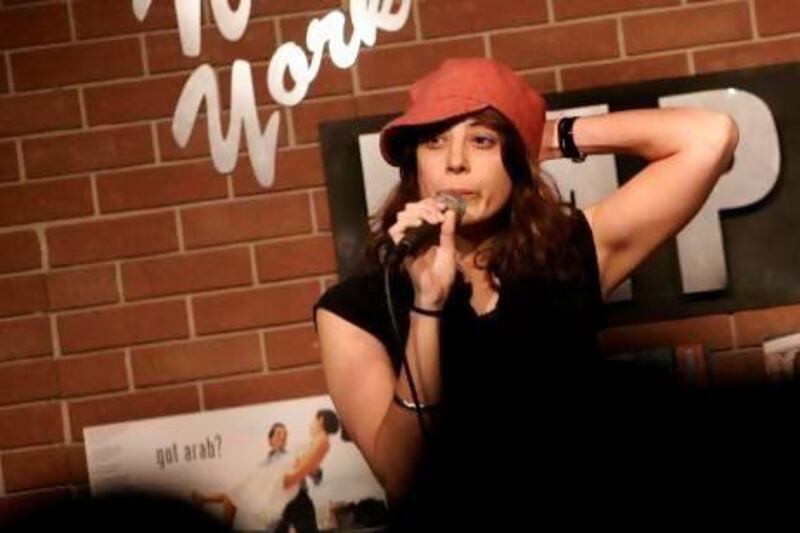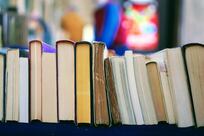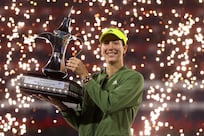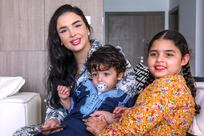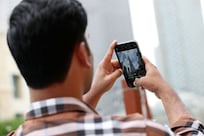In Orientalism, Edward Said's seminal 1978 work about how the West sees the East, Said declares that "the life of an Arab Palestinian in the West, particularly in America, is disheartening".
By this point, Said had been living in the US for almost three decades, long enough to be chafed by his adoptive country's attitude towards the Middle Eastern émigré: "The web of racism, cultural stereotypes, political imperialism, dehumanising ideology holding in the Arab or the Muslim is very strong indeed," he said, "and it is this web which every Palestinian has come to feel as his uniquely punishing destiny."
Orientalism became a landmark academic text, its author soon crowned as the father of postcolonial studies. Said's eloquent ire and penetrating insight were instrumental in dismantling that sticky web and making the West realise its view of others was jaundiced and blinkered.
Said's daughter, Najla, has written a memoir, Looking for Palestine, in which she examines not so much how others perceive her as an Arab-American, but how she perceives herself. It cannot be said, though, that she is following in her father's intellectual footsteps. This is no academic treatise on cultural relations, rather a warm, heartfelt account of a young girl trying to fit in and adapt throughout an era in which the word "Arab" has the power to raise hackles and trigger fresh waves of derogatory and damaging clichés.
The book is a journey of sorts, one with a true beginning and end: at the outset, the younger Said is unclear, even ashamed, of her ethnic background, and in the closing pages she comes full circle and appreciates her identity. It is no real arduous trek, but the writer, racked regularly by self-doubt, is sufficiently put through her paces, and the reader is glad to have tagged along for the ride.
On the first page, Said reveals who she is, and in doing so impresses on us her dilemma: "I am a Palestinian-Lebanese-American Christian woman, but I grew up as a Jew in New York City."
No sooner have we tried to digest this when she hits us again, muddying the water even more: "I began my life, however, as a WASP."
Still reeling from this bewildering admission, she whisks us off and back into her childhood. Her Palestinian father (at this point a professor at Columbia) and equally erudite Lebanese mother send her to a wealthy private school on the Upper East Side of Manhattan, where she immediately and acutely feels different ("I was a dark-haired rat in a sea of blond perfection").
As she struggles to comprehend who she is and where she belongs, the book's subtitle comes into play: Growing Up Confused in an Arab-American Family. That New York is a melting pot heightens, rather than diminishes, her confusion. Can she be an Arab-American hyphenate or must she choose only the latter and assimilate? It doesn't help that her parents are forever asserting their Arab-ness at a time, she feels, when they should be more discreet about it. What's more, she confesses to being unable to make the connection between "the fanatical Muslims on TV, the rich oil princes who showed up in movies, or the magic carpets and belly dancers in books and pictures and anyone I knew or had ever known in my life".
By the time the 1980s arrive, her confusion has soured into a more worrying schizophrenic identity crisis, one in which she shirks from any sense of kinship with Arabs. Beirut is now synonymous with war - "all that was uncivilised, evil, barbaric, violent, and foreign in the world" - and she believes she risks castigation and persecution in the playground by owning up to her Lebanese roots. The Palestinian thing is simply too incomprehensible to grasp, perhaps made more complicated by her father's proud pronouncement that he is both Palestinian and Arab.
Finally, paranoia and anxiety give way to feelings of shame, especially when she is around her Jewish friends. Deciding she is "too ugly and hairy and Arab", Said loses her confidence and direction, develops an eating disorder and crashes and burns.
It is only later, at Princeton and beyond, that she rebuilds and regains her lost confidence. The tone of the last third of the book reflects that of a young woman who can see herself and her place in the world more vividly. A new, more self-aware Najla Said emerges. Travel has broadened the mind, from many a sojourn with friends in Lebanon to a family pilgrimage to Palestine at the behest of her dying father. Boys begin to show an interest, charmed by her exoticness. Best of all, a hitherto unglimpsed gutsiness is unleashed.
Said is at the gym when the two planes fly into the World Trade Center. One of the trainers tells her the attack is clearly the work of the Palestinians - at which she explodes and demolishes his argument in a blisteringly fierce but succinct broadside.
This newly unveiled side of her character is long overdue and thus wholeheartedly welcomed: everyone likes to see the shy, awkward, self-conflicted ugly duckling come out on top. However, it would have been better if Said redux wasn't so eager to enumerate her talents: she is smart and witty; she can quote verbatim one admirer who gushed: "You're the kind of girl I'd want to kiss with open eyes. I'd love to be devoured by your intense, deep, dark stare."
At the end, we learn she has turned her life story into a play (some of which has become her book) and performing it off-Broadway and in colleges has resulted in standing ovations and admirers who thank her for articulating what they feel. During such effusive interludes, we long for a return to that crippling self-effacement.
Also, while Said's memoir is intended as an easy but enlightening read, there are places where that affable delivery and wide-eyed earnestness cloys. She cries regularly. Her discoveries sound like lines cribbed from a teenager's diary. Many things are "cool" or "weird". A bite-sized, broken-down history of Lebanon for the uninitiated is explained in "a really, really, really simple way". A TV show is "sooooo cheesy". In the Middle East, people stop by to visit and "it's not weird, it's lovely!" Exclamation marks skitter off the page. It may seem mean-spirited to puncture Said's enthusiasm in a book which, refreshingly, has no lofty airs or claims to academic greatness - but by the same token we can't help wishing it was a little more analytical or geopolitically savvy, shorn of explanations of "muezzin" or "intifada".
Another publication from this year, The Secretary by Kim Ghattas, twinned an account of the writer's time as a BBC journalist accompanying Hillary Clinton around the world with a rigorous examination of her native Lebanon. Granted, Ghattas has more experience as a writer than Said, but that shouldn't disqualify Said from trying to match Ghattas with illuminating observations of her own of a country she tells us she has now visited many times; illuminating observations, not redundant elucidation such as Beirut being "kind of like LA. But it's not".
And yet, elsewhere Said can certainly deliver. It is fascinating to witness Edward Said in private as a loving father, and his death is handled touchingly. Coverage of their trip to Palestine is worth the book's cover price alone: an episode chronicled as part postcard-sketch, part commentary of a humanitarian crisis, and one in which homeland becomes as pertinent an issue as identity. After leaving Gaza's Jabaliya refugee camp, "the filthiest zoo on earth", the family cross the border and burst into nervous laughter at a sign which reads: "YOU ARE IN JORDAN. SMILE."
Looking for Palestine is, for the most part, a misnomer. Said spends much of the time either fleeing from it, unearthing her roots and then disavowing them, or trying to weave her heritage into the rest of her patchwork identity.
Said's coming-of-age story is at its best when she is tackling her identity head on and making the slow but steady transition to comfortably straddle the line between East and West, Arab and American. Lebanon, she informs us at the end, is a country she has returned to again and again. And that other part of the picture, her father's homeland?
"Though I have never returned to Palestine," she informs us, "Palestine always returns to me."
Malcolm Forbes is a freelance essayist and reviewer.
